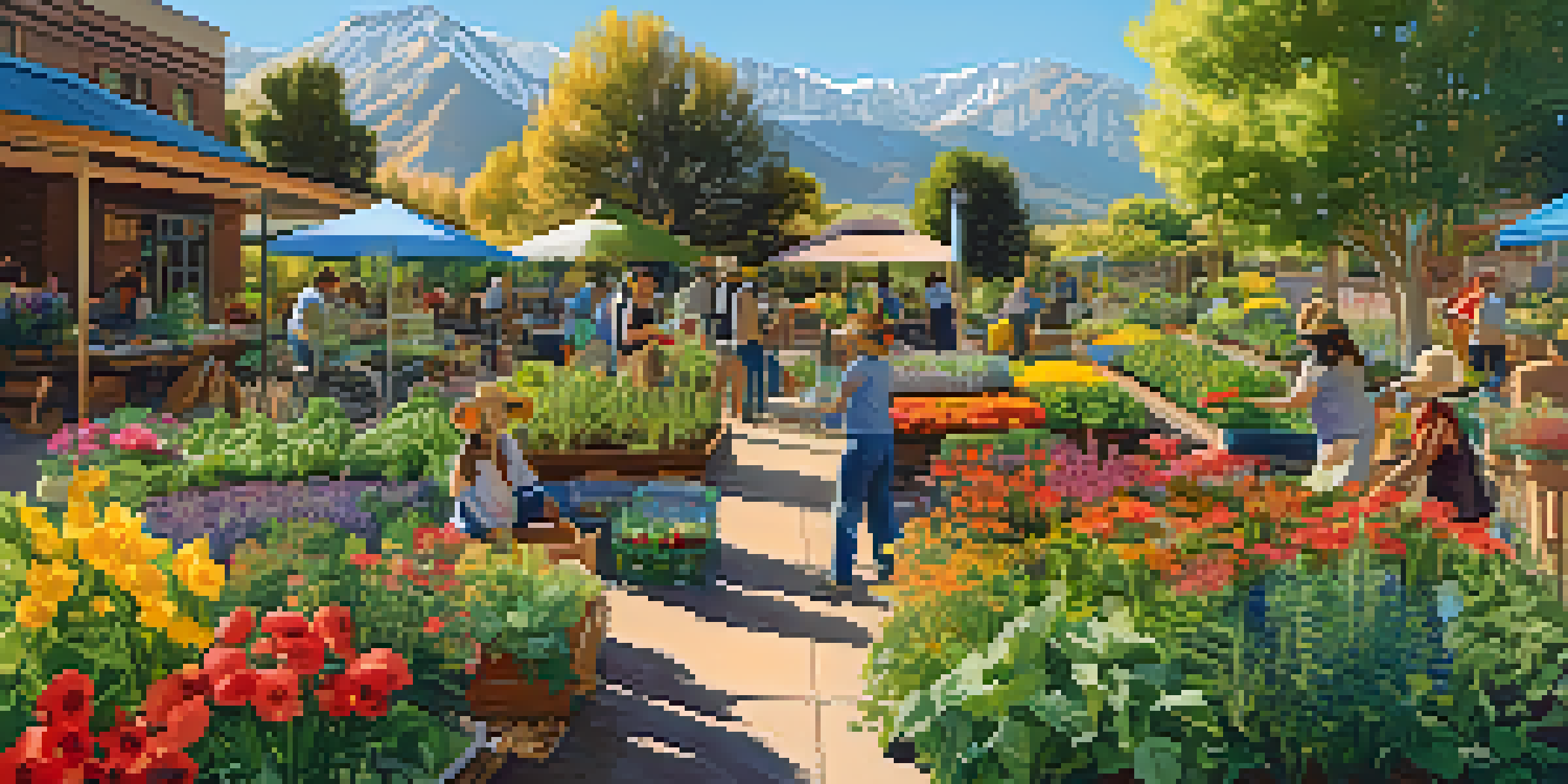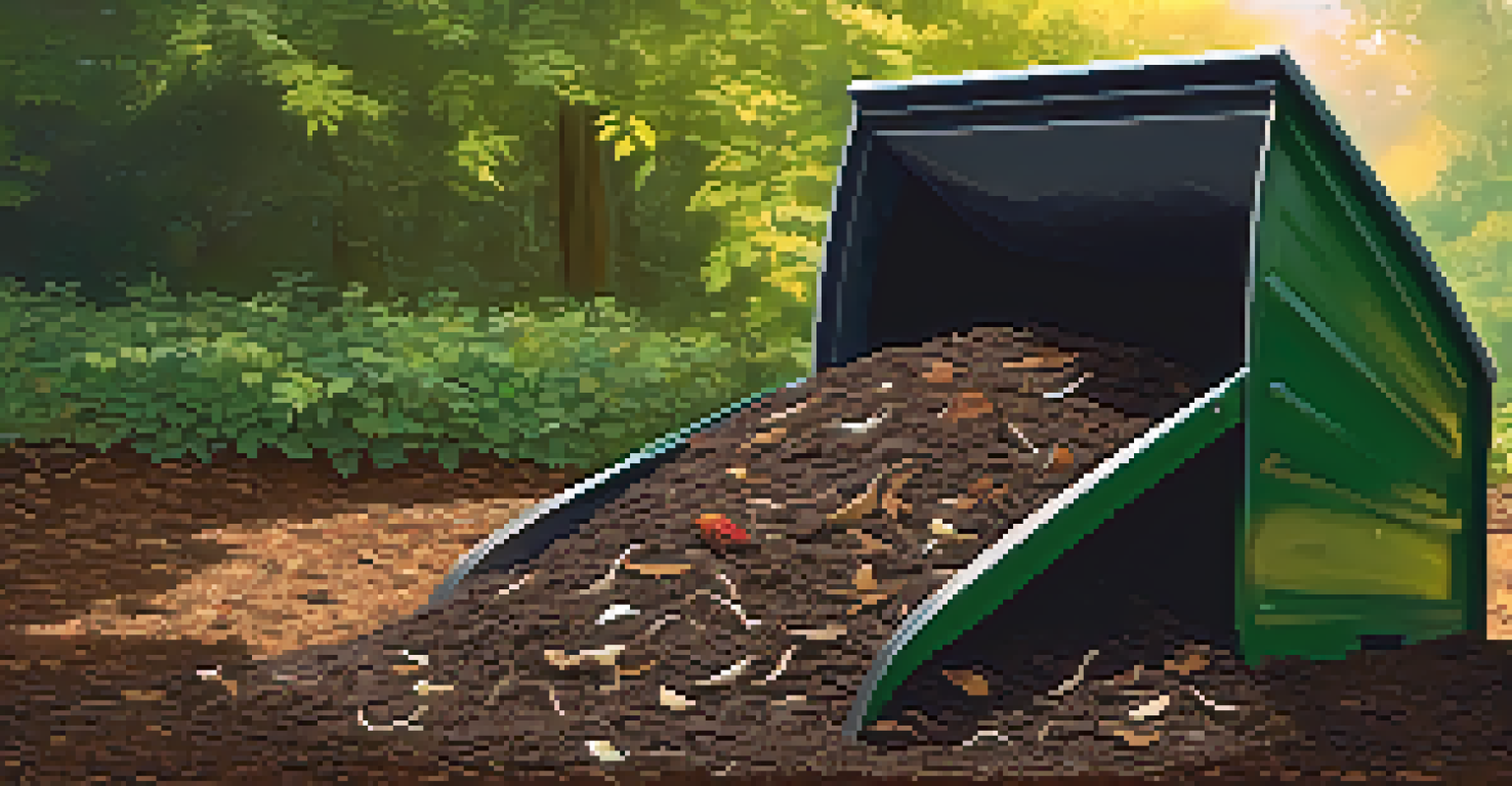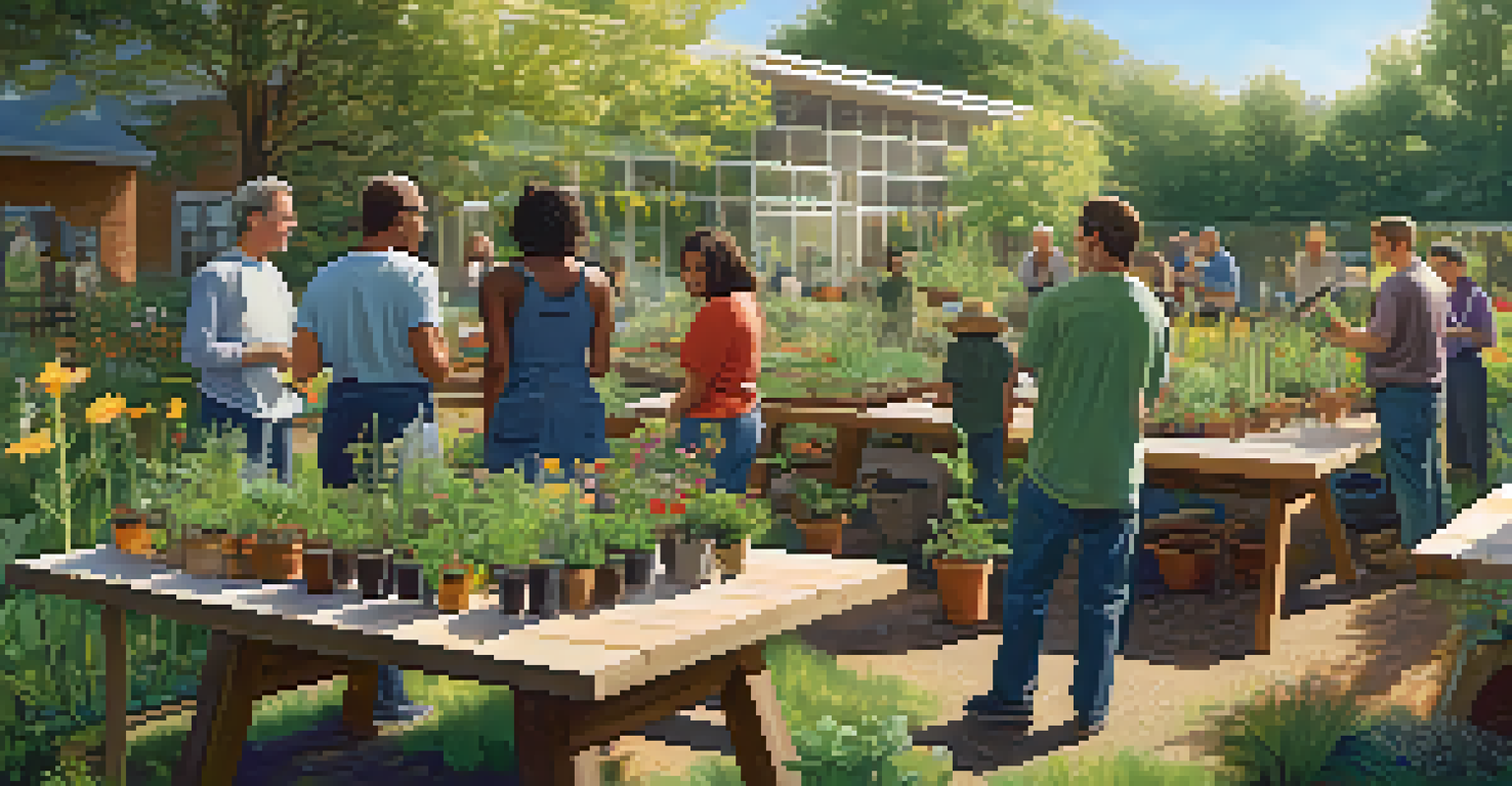Sustainable Practices in Boulder’s Community Gardens

Understanding Boulder’s Community Garden Initiative
Boulder's community gardens are more than just patches of green; they represent a commitment to sustainability and local food production. These gardens provide residents with the opportunity to grow their own food while fostering a sense of community. By participating in these gardens, individuals can engage with their neighbors and share gardening tips, creating bonds that extend beyond the soil.
The greatest threat to our planet is the belief that someone else will save it.
The initiative began as a response to the growing demand for fresh, organic produce in urban areas. By utilizing vacant lots and underused spaces, Boulder transformed its landscape into a sustainable haven. This proactive approach not only enhances food security but also promotes biodiversity in the city.
As these gardens flourish, they serve as educational platforms for sustainable practices, allowing individuals to learn about environmentally friendly gardening techniques. Workshops on composting, water conservation, and organic pest control are common, empowering gardeners to make informed choices.
Soil Health: The Foundation of Sustainable Gardening
Healthy soil is crucial for thriving plants, and Boulder’s community gardens prioritize soil health through organic practices. Gardeners focus on enriching the soil with compost, which is made from food scraps and yard waste, resulting in nutrient-dense earth. This natural approach not only enhances plant growth but also reduces waste, aligning with sustainability goals.

Furthermore, many gardeners practice crop rotation and companion planting to maintain soil fertility and discourage pests. By rotating crops, they prevent nutrient depletion and reduce the likelihood of disease. Companion planting, where certain plants are grown together for mutual benefit, is another method that promotes healthy ecosystems.
Community Gardens Foster Sustainability
Boulder's community gardens promote local food production and environmental awareness through sustainable practices.
The commitment to soil health reflects a broader understanding of how interconnected we are with our environment. When gardeners nurture their soil, they are effectively nurturing the planet, creating a cycle of sustainability that benefits the entire community.
Water Conservation Techniques in Action
Water conservation is a critical aspect of sustainable gardening, especially in an area like Boulder, where water resources can be limited. Many community gardens have implemented rainwater harvesting systems, which collect and store rainwater for irrigation purposes. This not only conserves municipal water but also reduces the garden's overall environmental footprint.
In every gardener, there is a child who believes in The Seed Fairy.
Additionally, drip irrigation systems are commonly used to ensure that water is delivered directly to the plant roots, minimizing evaporation and runoff. This targeted approach allows gardeners to use less water while keeping their plants healthy and thriving. It’s a perfect example of how technology can enhance traditional gardening practices.
Educating community members about these water-saving techniques further reinforces the gardens' sustainability mission. Workshops teach residents how to install their own systems and the importance of mindful water use, creating a ripple effect that extends beyond the gardens.
Promoting Biodiversity Through Native Plants
Boulder's community gardens actively promote biodiversity by incorporating native plants into their designs. Native plants are better adapted to the local climate and soil conditions, requiring less water and maintenance compared to non-native species. This practice not only supports local wildlife but also enhances the overall health of the garden ecosystem.
By attracting pollinators such as bees and butterflies, native plants contribute to the pollination of other crops grown in the gardens. This symbiotic relationship fosters a thriving environment that benefits both the plants and the gardeners. It’s a beautiful reminder of how interconnected our ecosystems truly are.
Soil Health is Essential for Growth
Healthy soil, enriched through composting and organic practices, is vital for thriving plants and supports a sustainable ecosystem.
Community members are often encouraged to plant native species in their individual plots, further promoting biodiversity throughout Boulder. This initiative helps to create a more resilient garden that can withstand pests and diseases while supporting local wildlife.
Community Engagement and Education in Gardening
Community engagement is at the heart of Boulder’s community gardens, where education plays a pivotal role. Workshops, events, and volunteer days bring people together, fostering a shared sense of responsibility towards sustainable gardening practices. These gatherings not only build community but also provide valuable knowledge that empowers individuals to grow their own food sustainably.
For example, classes on organic gardening techniques and permaculture principles are frequently held, equipping participants with the skills needed to cultivate their own gardens. This hands-on learning experience is invaluable, as it transforms theoretical knowledge into practical application right in the garden.
Moreover, the gardens often partner with local schools to introduce children to gardening and sustainability at a young age. This early exposure helps instill a sense of environmental stewardship, ensuring that future generations continue to prioritize sustainable practices.
The Role of Composting in Sustainable Practices
Composting is a cornerstone of sustainable gardening, and Boulder’s community gardens have embraced this practice wholeheartedly. By composting kitchen scraps and garden waste, they create rich soil amendments that nourish their plants while diverting waste from landfills. It’s a win-win for both the environment and the gardeners.
Many gardens have established communal compost bins, allowing all members to contribute and benefit from the compost produced. This collaborative effort not only enhances the soil but also fosters a sense of community as participants share in the fruits of their labor. Plus, learning about the composting process demystifies organic gardening for newcomers.
Education Empowers Gardening Communities
Workshops and community engagement in the gardens empower residents with the knowledge and skills needed for sustainable gardening.
The gardens also educate members on the importance of composting in reducing greenhouse gas emissions. By composting instead of throwing organic waste in the trash, gardeners are playing a crucial role in combating climate change while enriching their gardening experience.
Celebrating the Impact of Community Gardens
The impact of Boulder’s community gardens extends far beyond the produce they yield; they are a testament to the power of community and sustainable practices. These gardens have become vital spaces for fostering environmental awareness and encouraging sustainable living among residents. Each harvest is a reflection of the collective effort of the community.
As a result, community gardens have not only enhanced local food security but have also strengthened social ties among residents. The act of tending to a garden together cultivates friendships and encourages collaboration, making the community more resilient as a whole. It’s a beautiful example of how nature can bring people together.

Looking forward, the continued success of these gardens relies on the ongoing commitment of the community to embrace sustainable practices. With each new season, gardeners are reminded of their role in shaping a more sustainable future, one garden at a time.